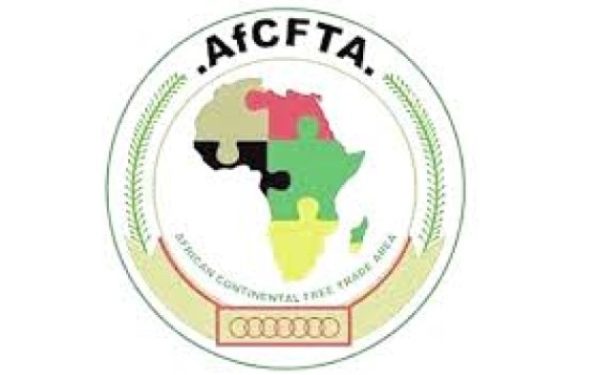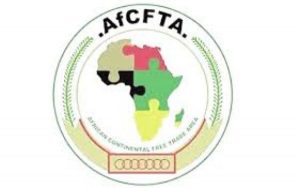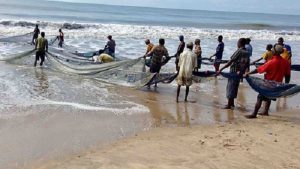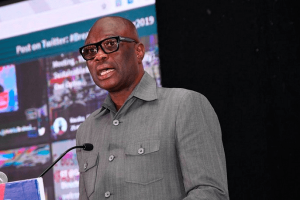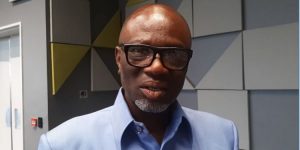Tariff and non-tariff barriers in the country remain a real threat to the vision of a liberalised African trade market under the African Continental Free Trade Area (AfCFTA).
This is despite the fact that Ghana’s legal framework supports free trade, says a study that revealed tariff barriers are imposed as taxes and duties on imports – while non-tariff barriers (NTBs) encompass protectionist policies against foreign trade.
Combined, it said, they threaten the idea of a free continental free trade market.
Under the AFCFTA’s mandate for gradually reducing tariffs and eliminating non-tariff barriers, Ghana is expected to liberalize tariffs over ten years and remove non-tariff barriers.
“Removing these restrictions will significantly increase trade within African countries,” says the study dubbed— Situational analysis of Ghana’s AFCFTA preparedness: a review of the legal, policy and regulatory Framework for implementation of the African Continental Free Trade Agreement (AFCFTA in Ghana).
Produced by Ishmael Yamson & Associates and Sam Okudzeto & Associates on behalf of the University of Professional Studies-Accra (UPSA) Law School, the report underscores the necessity of addressing certain challenges within the domestic legal framework to enhance the AfCFTA’s implementation.
These challenges encompass the absence of harmonization in laws, regulations and standards across the continent.
The report suggests the country should strive to align its laws with those of other African nations to facilitate the smooth movement of goods and services across borders.
Furthermore, it highlights that insufficient funding for policy implementation, coupled with a deficiency in the necessary skills for policy execution – along with issues such as transparency deficits, inconsistent and overlapping regulations and a centralized and costly bureaucratic system – pose significant challenges.
These challenges make enforcement difficult, and compliance confusing and costly; further impeding the country’s effective participation in the free trade area.
Ghana must excel in AfCFTA implementation
In response to the report, Dr. Fareed Arthur, Head-National AfCFTA Coordination Office, expressed gratitude to UPSA Law School and the authors for their extensive work.
He also mentioned that while he appreciates the report, there are certain points on which he holds differing opinions.
“Depending on where and what you are looking at, the issue of preparedness comes out differently. It [AfCFTA] is a new experiment. We are still negotiating parts of the World Trade Organisation protocols even after its existence for over 50 years. In these agreements, you can never be entirely prepared because it’s an ongoing and evolving process. AfCFTA is not a one-time event that you prepare for and then simply sit,” said Dr. Arthur.
With that said, he believes the study’s findings will contribute to the government’s efforts in harnessing the benefits which AfCFTA bring, saying: “The narrative is that Ghana consistently perceives itself as a leading force in the political liberation of this continent. We believe that AfCFTA represents the economic frontier, and as such Ghana must excel in its implementation”.
AfCTA must never fail
The commencement of AfCFTA creates the world’s largest free trade area, encompassing the most countries in its reach.
This historic pact links 55 countries, uniting 1.3 billion people and boasting a collective gross domestic product (GDP) valued at US$ 3.4 trillion.
Moreover, it holds the promise of uplifting 30 million individuals from extreme poverty. However, realizing its full potential hinges on the implementation of substantial policy reforms and the facilitation of trade.
Deputy Trade and Industry Minister, Michael Okyere Baafi – who launched the report, emphasized that the concept of free trade on the continent is not only a game-changer but also an opportunity for Africans to discover and leverage the potential of Africa to their advantage.
He also envisions this development as a means to transform the African continent into a place that is regarded as the best in the world by everyone.
“We are exploring Africa to see the opportunities available. So, let’s make sure that Africans take advantage of all the opportunities available in Africa. This is the way to make the continent rich and avoid travelling to the West for loans,” he said.
“So, we cannot fail. It’s important that as a country we strive to ensure this concept [AfCFTA] works, as host of the secretariat. It must never be allowed to fail,” he added.

